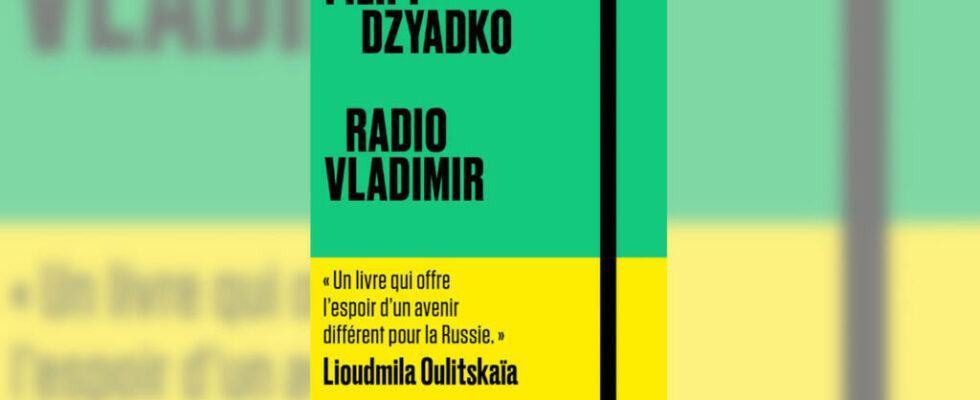A dive into a different Russia, a Russia of opponents of the war and the regime of Vladimir Putin and who often fight in silence and in solitude: this is what the Russian writer offers us in exile Filipp Dzyadko, grandson and sons of dissidents. In his book Radio Vladimir (Stock editions), he recounts the acts of resistance of those who, today as yesterday, dare to oppose. Filipp Dzyadko is questioned by Anastasia Becchio.
RFI: The title of your book refers to a radio, a pirate radio of a man, Vladimir Roumiantsev, who decided to create his own radio. You have had a correspondence with him when he found himself in prison.
Filipp Dzyatko : Yes, he is an amazing man. He is over 60 years old. He lived alone in the city of Vologda. It is a small provincial town, located 500 kilometers from Moscow. Vladimir worked all his life in factories, he was a boiler room. And he himself came from a workers’ family. His father worked at the factory for 50 years. He started working under Stalin and ended his career under Poutine. He is therefore a man of the people, a man of the laborious class.
One day, this man decides that he does not agree with what is happening around him. All his life, he was in love with the radio. When the Russia annexed Crimea in 2014he decided that he no longer wanted to listen to the propaganda of the state which was broadcast on the air, and he extinguished everything in his apartment. And as he tells, the silence then settled. It was necessary to fill this vacuum and he therefore ordered various components on the internet and he built his own radio station, whose broadcasting radius was confined to his apartment and several neighboring apartments.
And despite the fact that his pirate radio was really confidential, he was arrested in the summer of 2022 and imprisoned. In your book, you talk about these people, most of them, who continue to oppose the regime, to war. But in an increasingly repressive environment, how to express your disagreement without risking ending up in prison ?
It is very dangerous, and few people realize how dangerous it is. In my book, I am talking about this secret society, because these people do not know each other. There are known people, like Alexei Navalny. It’s been over a year since he is no longer with us. There is also the elected municipal opposition Alexei Gorinovwho is a real hero and who is the first person to have been condemned for denouncing the war. He is tortured in prison. We have to put pressure for him to be released. Several thousand other people are persecuted for their anti-war opinions.
But there are also all those involved in discreet resistance. We do not know their number. In general, Russia is, today, in many ways, a black box. What the authorities say, citing the war support figures, is certainly a lie. And we don’t really know what Russian society thinks. But we have various acts of resistance. It is sometimes an open resistance, as in the case of the famous political prisoners, but sometimes it is not very visible. But it exists.
There are also all these letters, these thousands of letters of support that these political prisoners receive.
Yes, write to political prisonersthis is one of the ways to support and take part in this secret society. Electronic letters can be written through the penitentiary system. Political prisoners say that it is incredible support for them. And in turn, they support those outside. It is also a striking paradox: political prisoners are often much more optimistic than people who are outside and who are depressed due to this war. In a way, political prisoners support those outside.
You left Russia in March 2022, just after the Russian Invasion on a large scale of Ukraine. You live in Berlin. How do you feel today ?
The first two years after my departure from Russia, I had the feeling that I did not have the right to have moods and that I should not think of myself. A terrible war is underway, in Russia. We lock up political prisoners behind bars, and I will think of my peace of mind. It is incontesting. But then, I matured and I understood that to be able to do something for others, you also have to take care of yourself. It’s a bit like in an airplane: you must first put the oxygen mask on yourself before putting it to your child. And I have the feeling that today, but others too, we put this oxygen mask and that we learn to live a new life. It teaches us humility. We look at the errors that we made, we learn.
